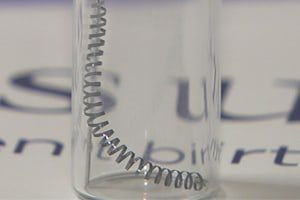
The U.S. Food and Drug Administration (FDA) has said it will announce its decision about what action it will take on Bayer’s permanent birth control device Essure in February 2016. The FDA decision will be based on information gathered by the Obstetrics and Gynecology Devices Panel of the Medical Devices Advisory Committee at a meeting […]
 The U.S. Food and Drug Administration (FDA) has said it will announce its decision about what action it will take on Bayer’s permanent birth control device Essure in February 2016.
The U.S. Food and Drug Administration (FDA) has said it will announce its decision about what action it will take on Bayer’s permanent birth control device Essure in February 2016.
The FDA decision will be based on information gathered by the Obstetrics and Gynecology Devices Panel of the Medical Devices Advisory Committee at a meeting in September 2015 and through submissions of studies and other data, Drugwatch.com reports.
The panel was convened after the FDA had received 5,000 adverse event reports linked to Essure since the device came on the market in 2002. Women reported complications linked to the device including pelvic pain, painful sex, organ perforation, device migration, metal allergies, unplanned pregnancies, and ectopic pregnancies, which can be life threatening if not detected early. In its announcement, the FDA said, “Patient health and well-being is our first priority regarding this device and all medical devices.”
Members of the Facebook group Essure Problems spoke at the September panel meeting, urging the agency to pull the device from the market. The women say they were never warned about the risks. The Facebook group has 24,000 members and continues to grow, according to Drugwatch.
Essure is a permanent form of birth control, marketed as a non-surgical alternative to standard laparoscopic sterilization surgery, which is done with small incisions. The Essure device consists of a small pair of metal coils that are inserted into the fallopian tubes to create scar tissue that blocks the tubes and prevents pregnancy. Essure can be inserted in a procedure in a doctor’s office.
When a drug or medical device harms a patient, the injured party may choose to file a lawsuit if they were not warned of side effects or dangers. In the case of Essure, thousands of women are barred from seeking compensation for serious complications because these devices are protected from liability by their premarket approval (PMA) status—they are supposed to have been rigorously tested. But, women who suffer from Essure complications dispute this, Drugwatch reports. Angie Firmalino, who founded the Essure Problems group on Facebook after her Essure coils migrated and embedded in her uterus, said she “honestly had no idea that these devices could expel from our fallopian tubes and perforate organs or embed in other areas of the body.” Many of the women who spoke to the panel or submitted statements called for the PMA to be revoked.
Amanda Dykeman, an Essure Problems administrator, presented evidence that Bayer falsified clinical trial records to get the device approved. Original participants in the Essure trials came forward and said their responses to questions about complications were falsified. According to information Dykeman presented to the panel, “alterations were made by the lead investigator of Essure, who also had equity positions with the company, providing serious financial conflict of interest.”
Women who say they have been harmed by Essure have taken their concerns to Congress as well, and Rep. Mike Fitzpatrick of Pennsylvania has introduced legislation to require Essure to be withdrawn from the market, Drugwatch reports.


